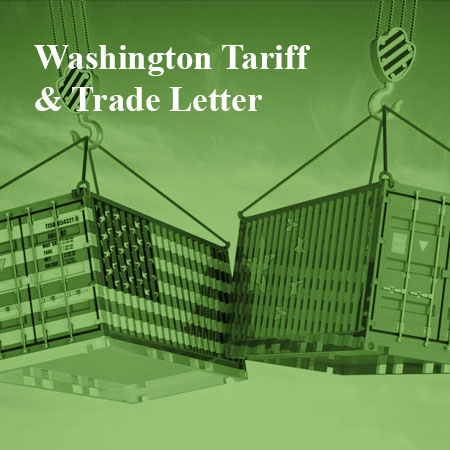Haiti's Parliament Ratifies OPIC's Investment Incentive Agreement
June 24, 2013
(OPIC)
WASHINGTON, D.C. – The Overseas Private Investment Corporation (OPIC), the U.S.
Government’s development finance institution, recently announced the official
publication of an Investment Incentive Agreement (IIA) with the Government of
Haiti to support U.S. private sector investment in the nation. Haiti’s
Parliament ratified the agreement on May 7, 2013 during a special joint session
of Parliament, or “National Assembly,” in Port-au-Prince.
The agreement reaffirms the two countries’ commitment to encourage U.S. private
sector investment in Haiti. It also streamlines OPIC’s ability to support U.S.
companies’ investments that contribute to the economic development of the
country. Parliament’s approval of the Investment Incentive Agreement, which was
originally signed and considered to be in full force by the U.S. in 1998,
supports a smoother path for foreign direct investment (FDI) in Haiti. For the
last 15 years, OPIC has been conducting business in Haiti, which has resulted in
a portfolio totaling in $76 million across six different projects in a variety
of sectors. This agreement will facilitate OPIC’s goal of doubling its Haiti
portfolio to $150 million.
“The ratification of the Investment Incentive Agreement ensures OPIC’s ability
to work with U.S. companies present in Haiti, as well as the Haitian Diaspora
community and other U.S. investors, to partner in projects that encourage
economic development through the strengthening of Haiti’s physical and financial
infrastructure, while also creating opportunities for employment,” said OPIC
President and CEO Elizabeth Littlefield.
In February, President Littlefield led an OPIC delegation to Haiti, where they
launched an important mortgage finance project developed in partnership with the
U.S. Agency for International Development (USAID) and the Clinton Bush Haiti
Fund. Development Innovations Group (DIG), a U.S.-based housing finance and
urban development firm, is currently managing the project. The delegation also
visited current OPIC project sites, many of which were initiated as part of the
reconstruction effort following Haiti’s devastating earthquake in 2010. For
example, the Haiti 360 project has used a $6 million OPIC loan to support
startup costs of four plants producing high-quality concrete used to rebuild
homes, roads, hotels, hospitals, and an airport runway. In 2012, approximately
1,500 homes were built with concrete from the plants. Additionally, in 2010,
OPIC provided political risk insurance to Seaboard Corp., a U.S. company working
on rebuilding Les Moulins d’Haiti, a key flour mill and animal feed facility
destroyed by the earthquake, which produced as much as 95 percent of the
country’s flour prior to the earthquake.
Welcome to the Exporting Source
Your one-stop resource for finding help to export to new customers, to learn about government export programs, to join export-promoting trade missions, to sign up for trade conferences and training, and to link to other exporting services. Whether you're an old hand at exporting or just getting started, the Exporting Source provides a place to locate foreign customers, export financing and foreign investment assistance.

The Export Practitioner
Providing readers with expert reports on changes to U.S. export licensing rules, enforcement policies and regulations for defense and dual-use products and technology.

Washington Tariff & Trade Letter
Providing exclusive, behind-the-scenes news and analysis every week of U.S. trade policies, regulations and legislation, export controls, trade sanctions, and enforcement of antidumping and countervailing duty laws.

Mastering Deemed Exports
An invaluable video training tool that helps exporters, universities and research laboratories alert all employees to the potential fines and legal sanctions that can come from violating EAR and ITAR restrictions on giving certain foreign nationals access to controlled U.S. technology.